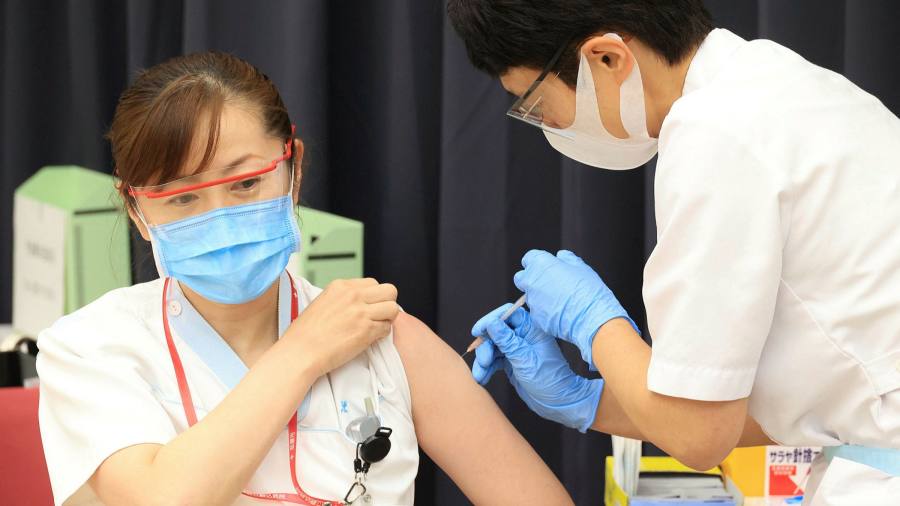[ad_1]
The Bank of Japan’s biggest review of its monetary policy in almost five years will maintain monetary easing but lay the groundwork for a “nimble†response to changing conditions, according to the central bank’s deputy governor.
In a closely watched speech in Tokyo, Masayoshi Amamiya — regarded as the BoJ’s chief monetary strategist — signalled that the central bank wanted to leave the yield curve unchanged when it announces the outcome of a “comprehensive review†next week.
Amamiya’s comments, coming on top of remarks by governor Haruhiko Kuroda last week, suggest the BoJ has backed away from immediate changes to monetary policy as Japan struggles to get its Covid-19 vaccination programme up and running.
That will dash the hopes of Japan’s financial sector, which hoped the BoJ would allow long-term bond yields to rise, steepening the yield curve and making it easier for banks, insurers and pension funds to earn a return on their money.
“With the economy hit by the impact of Covid-19, what is important now is to maintain the stability in the bond market and stabilise the entire yield curve at a low level,†said Amamiya in an online speech hosted by the Yomiuri Shimbun newspaper.
The BoJ has been conducting an all-out programme of monetary stimulus since 2013, expanding its balance sheet to more than 100 per cent of Japan’s gross domestic product, and cutting overnight interest rates to minus 0.1 per cent.
Its last comprehensive review in 2016 brought in “yield curve controlâ€, under which the BoJ buys as many bonds as needed to keep 10-year yields pinned at around zero. The decision to describe this review as “comprehensive†raised expectations that a big policy change was in the offing.
However, Kuroda dashed those expectations last Friday in testimony to the Diet, saying that he thought widening the permitted band for 10-year yields was “neither necessary not appropriateâ€. Those comments triggered a fall in Japanese government bond yields and a drop in the yen against the dollar.
Amamiya said the three goals of the review were to continue monetary easing, reduce the side effects of BoJ policy and make the central bank’s response to changing conditions more “nimble and effectiveâ€.
He implied that changes to the range for bond yields had been under consideration. “Fluctuations within a certain range could have positive effects on the functioning of JGB markets without losing the effects of monetary easing,†said Amamiya.
That suggests the BoJ could revisit the policy this year if the recovery from Covid-19 is strong.
Amamiya also hinted at a change in the BoJ’s approach to buying equity funds, which has been criticised for mechanically stepping in whenever equities fall, and thus distorting the market. The central bank’s policy is to buy a maximum of ¥12tn ($111bn) in equities every year.
Coronavirus business update

How is coronavirus taking its toll on markets, business, and our everyday lives and workplaces? Stay briefed with our coronavirus newsletter.
The deputy governor said that equity purchases were most effective in times of market stress. That could mean a change in policy towards lower purchases when markets were stable, while retaining the option to step in decisively during moments of turmoil, such as last spring.
“Conducting purchases flexibly in a prioritised manner will lead to enhancing the sustainability of monetary easing,†he said.
The BoJ is expected to release the outcome of its review at its next monetary policy meeting, which will conclude with a press conference from Kuroda on Friday March 19.
[ad_2]
Source link





